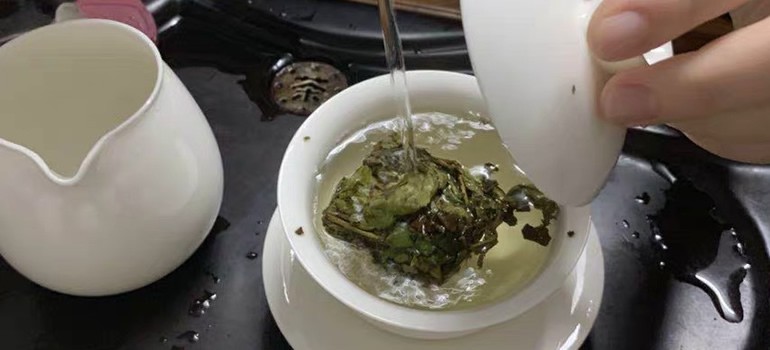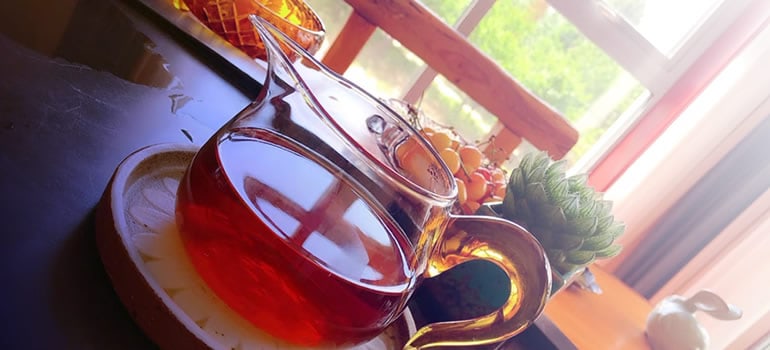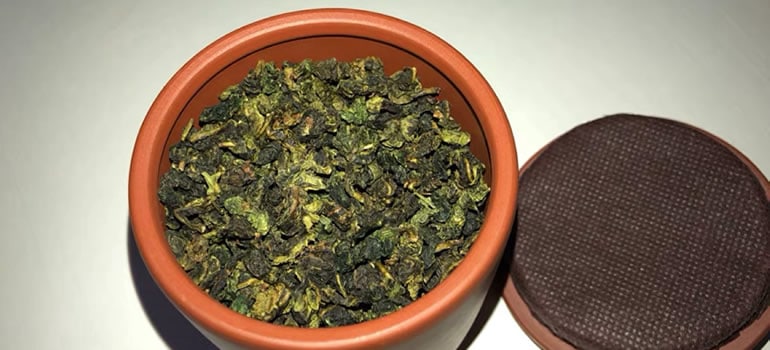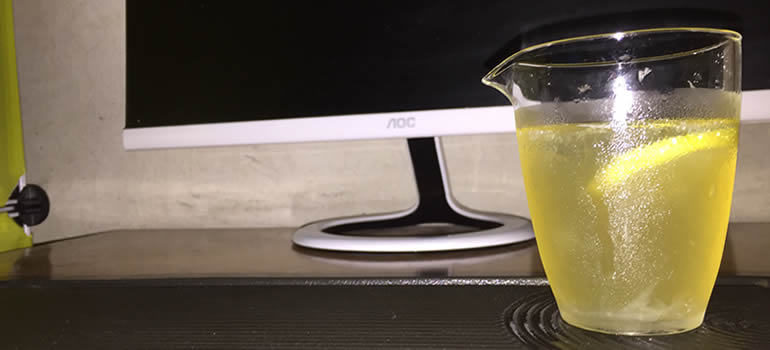I am sure you know that tea can have many different health benefits.
Even scientific research has shown that tea may help with many different health conditions. Sometimes it may seem like there are literally no downsides to tea.
So having an extra cuppa of tea may not really look like a bad decision after all. However, it may not be too hard to find yourself in a situation where you have either made too much tea or for some reason you don’t have enough time to drink it.
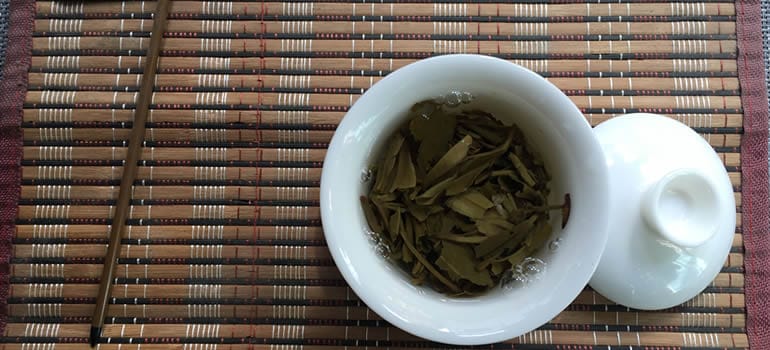
This may have a lot of people actually wonder how bad is old tea, and can it be unhealthy to drink it?
So, will old tea make you sick? Tea is best consumed after preparation. Old tea will have an inferior taste and antioxidant qualities. It will not necessarily make you sick, but it is not recommended to be consumed. The same rule applies to old tea leaves, which may be safe as long as they have been stored properly, but will be of poorer quality.
There are certain aspects and environmental factors that will ultimately affect how good or bad and how quickly your tea may spoil.
Considering the different details will help you to understand your tea better. So let’s take a more in-depth look at this.
Can Expired Tea Make You Sick?
Drinking expired tea has very little chance actually hurting you. The worst-case scenario is that you may be left with a really bad taste in your mouth or an upset stomach.
Generally speaking, tea can probably last several decades if stored properly.
However, due to the degradation and oxidation with time, tea will start to lose its flavor and aroma. Usually, it will taste stale, and the flavor will be blander than what it should be.
So an old (or expired) tea can still be drinkable, but it’s taste qualities will have altered.
How long it will take for the tea actually to become like this is hard to point out as time will vary with the different kinds of tea and the storing conditions.
Even if you brew an old tea that has been stored in the back of your cupboard for a long time, don’t get too worried. Just discard it and buy yourself a new fresh tea.
So depending on how the tea is stored, it can last a long time. One of the downsides, though, is that despite how well it is stored, it will eventually start losing some of its health properties and flavor.
1. Do Tea Bags Go Bad?
Tea bags that are kept in dry places will usually last a long time. If they get exposed to some moisture, they should be thrown out.
The tea leaves in the tea bags are generally of inferior quality, and they are cut into tiny pieces.
Frequently the smallest tea leaves that are left after separating the quality big tea leaves are used for tea bags. These are called fanning or dust because of their smaller size.
And because they are generally broken down into really small pieces, they are more prone to oxidation. Because of that, they may lose their antioxidant content a lot quicker.
2. Does Loose Leaf Tea Go Bad?
Loose leaf tea has a shelf life, too.
It needs to be stored in a dry and airtight container that will stop the sunlight from entering it.
If you have bought loose leaf tea in a paper bag, you need to make sure you transfer it into an appropriate container as soon as possible.
Even though loose leaf tea may be of higher quality, eventually, it will go bad. But when exactly will vary from tea to tea and various other factors. For instance, larger tea leaves or better and more tightly rolled leaves will last longer.
Does Tea Go Bad After Brewed?
Now let’s explore what happens with the tea after being brewed.
We’ve brewed our favorite type of tea but weren’t able to finish it. Hours later (or even days later) we find our long-forgotten cup of tea.
Is drinking it going to make us sick?
1. Is It Safe to Drink an Overnight Tea?
Occasionally forgetting about our cup of tea is something that can happen to everybody.
Whether or not drinking it is bad will depend on a few things.
First, how much time has passed. Anywhere from 3 to 5 hours may be considered okay-ish. The tea taste and flavor will have started to deteriorate, and it may probably not taste very nice, though.
Second, the room temperature and the ingredients used. If you have added other ingredients to the tea like milk, creamers or sugar, this may mean that your tea might have gone bad (for example the milk in the tea can get spoiled pretty quickly).
In some cases, a long-abandoned cup of tea may start growing mold.
So if you are considering drinking your old tea from yesterday, the answer is, please don’t. There are some areas in China where people even go as far as considering old tea to be poisonous.
2. Does Iced Tea Go Bad?
Homemade or commercial iced tea can be kept in the fridge for at least 3 to 5 days.
If iced tea has gone bad, it should have a different funky smell, taste, look to it.
Sometimes homemade iced tea can start to cloud if cooled down too quickly. This is not necessarily a bad thing, though. It happens when the antioxidants bind with some of the minerals that may be found in the water.
Storing Tea
1. How to Store Brewed Tea?
It is not a rare thing to end up with more tea than you previously thought you needed.
In those cases, it is best to store it in a proper way that will keep it fresh for as long as possible. That way you can enjoy a nice cuppa of tea even the day after without having to worry about whether or not it may make you sick.
The time tea can stay fresh will depend on a few factors like:
- Light exposure.
- Air exposure.
- Moisture.
- Odors.
Thus the best way to store tea is to try and protect it from these things by:
- Using an airtight container that will not allow light to pass through it.
- Store the tea in a dry and cool place.
- Avoid leaving the tea exposed to food odors.
Freezing tea is not a viable option to preserve the tea’s qualities.
2. How to Store Tea Leaves?
Tea leaves are a different case but will obey the same general storage principles.
One of the first things that will cause tea leaves to go bad is the contact with oxygen. So make sure to keep tea leaves in an airtight container.
To better preserve the right flavor and aroma of the tea, we should use containers that do not absorb and carry over the smell of the things that are stored in it.
And last but not least, the container should stop sunlight from getting inside.
Overall the best containers for storing tea leaves are going to be:
- Stainless steel containers
- Dark glass containers.
3. Can You Freeze Tea Leaves?
The manufacturers are freezing some tea leaves in order to keep them fresh, keep the nutrients active for longer, and prevent the process of oxidation.
However, they have the tea leaves vacuum sealed the whole time, and they also use refrigerators that are designed for that purpose in particular.
If you have an unopened airtight container with tea leaves, then refrigeration may not spoil the leaves in any way. But if you have a box or other type of container that you use for storing tea leaves which you use frequently, freezing is not recommended as this will expose the leaves to moisture.
How to Find out If the Tea Has Gone Bad?
There can be a few telltale signs that your tea might have expired or gone really bad and should be thrown out.
- The tea has a bland and stale taste after brewing.
- If there are any signs and traces of mold growth due to moisture.
- Any coloring spots on the tea bags will indicate that the tea has been exposed to moisture.
Resources:
https://www.thefragrantleaf.com/basic-tea-brewing-and-storage
https://now.tufts.edu/articles/tea-health-benefits-storage-time
https://www.teaclass.com/lesson_0304.html
https://www.webmd.com/diet/features/tea-types-and-their-health-benefits#1
https://www.quora.com/Is-it-bad-to-drink-tea-some-hours-after-it-was-made-after-reheating
https://culinaryteas.com/blogs/news/17310612-6-things-you-should-not-do-when-drinking-tea

